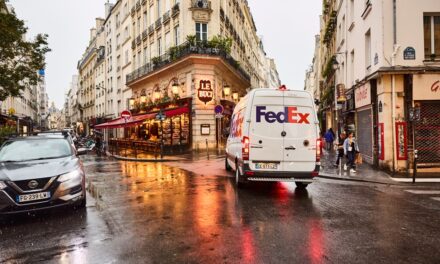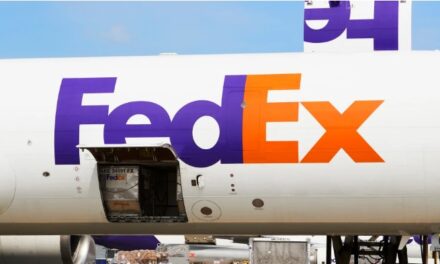
Retail outlets bring more pain to express operators
FedEx stated that it would take US$1.2 billion in charges in its fiscal fourth quarter, which ended on May 31. The lion’s share of this is an $810 million charge against its retail outlet chain Kinko’s, which it acquired in 2004 and subsequently rebranded FedEx Office. The storefront of the integrators is not working. In an 8-K report filed with the US Securities and Exchange Commission, FedEx stated that it would take US$1.2 billion in charges in its fiscal fourth quarter, which ended on May 31. The lion's share of this is an $810 million charge against its retail outlet chain Kinko's, which it acquired in 2004 and subsequently rebranded FedEx Office.
The charge is for reduced goodwill at the operation, which has been performing below expectations. In part, this has been attributed to the economic downturn. However, the retail chain's troubles started long before then. It never achieved the kind of results that FedEx management had been looking for, which was reflected in various efforts to overhaul it, culminating in a change in FedEx Office top management in 2008.
Over the past year, Kinko's has been in retreat, shrinking its international footprint. In May it exited from the British market when it sold its five UK sites for an undisclosed sum. Management did not comment on the sale. At the end of last September FedEx announced that it was going to shut down Kinko's operations in Australia, the Netherlands and Mexico. By its own admission, support costs to operate the 11 print centres in Sydney and Melbourne were exceeding the revenue generated by them.
In the most recent published quarterly results – for the three-month period that ended February 28 – the FedEx Service segment, which includes FedEx Office and FedEx Global Supply Chain Services, tabled a 10 percent drop in revenue due to declines in printing and document service revenues.
In the last quarter of its previous fiscal year, FedEx took a $891 million charge in relation to dropping Kinko's brand name. The integrator acquired the Kinko's retail chain for $2.6 billion.
Rival UPS is curtailing its ownership of Mail Boxes Etc outside North America. In May, it announced that it was selling its international network of Mail Boxes Etc to Italy's Fineffe Group. The deal hands over the master licence agreements for 1,227 locations in over 30 countries.
With branches in Italy, Spain, Germany and Austria, the Fineffe Group was already the largest international master licensee for the brand. UPS held on to the UPS Store and Mail Boxes Etc brands in its home market, Canada and India. The integrator had bought Mail Boxes Etc in 2001 to develop a retail presence.
Two years ago retail outlets were still viewed as a strategic move to expand express companies' reach to small and mid-sized clients. Purolator Courier, the largest courier company in Canada, moved in the same direction as FedEx and UPS in 2006 when it struck an alliance with office supplies chain Staples. The move added some 270 retail points to the courier firm's network.
Self-employed individuals and small businesses, including home-based outfits, formed a segment that was growing faster than the overall market. Yields from this clientele have been particularly lucrative, as they are usually not eligible for the kinds of discount given to large corporate customers and typically pay the full published rates. In addition, corporate "road warriors'' travelling for large companies were another major target group.
According to spokespersons for Purolator and UPS, the establishment of a strong retail presence has not cannibalised their traffic through their traditional courier depots. They claimed that the retail strategy allowed them to tap into new seams of clientele.
However, FedEx's ongoing troubles with Kinko's and the recent retrenchments at FedEx and UPS suggest that this clientele is not lucrative enough to offset the costs associated with maintaining a retail chain, particularly in a severe economic downturn.












